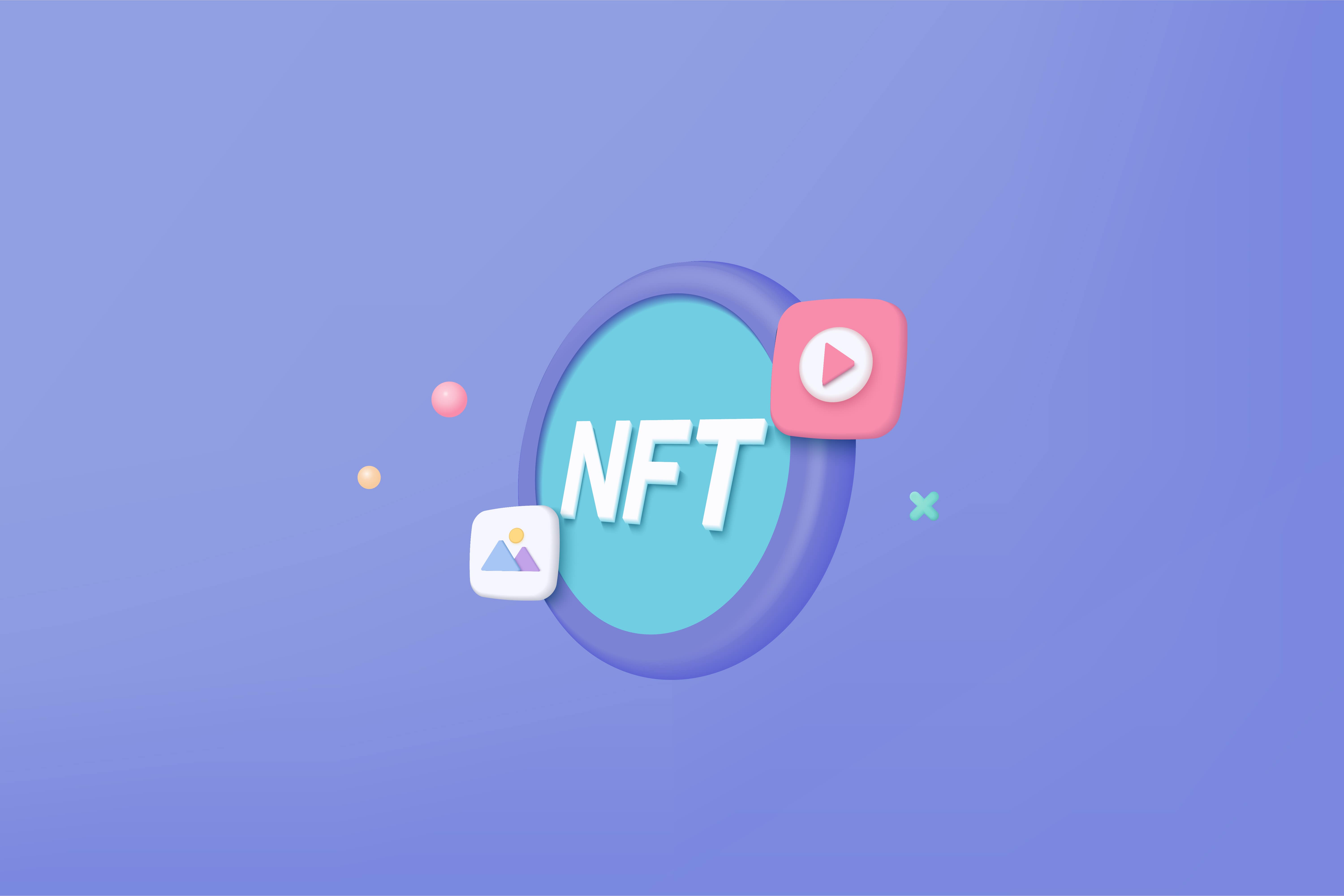
Seeing your favorite musician perform live is an incredible experience, isn’t it? But your paper-based ticket can get lost or stolen, ruining your entire day. A digitized ticket reduces the chance of loss, but QR codes are easy to counterfeit. In addition, such tickets don’t offer much in terms of memorabilia. In this case, NFT-based tickets are a perfect match for concertgoers.
NFTs are digital assets stored on a blockchain, so the risk of damaging or losing your ticket is relatively low. NFT-based tickets can address the weaknesses of traditional tickets, become valuable digital collectibles, offer exclusive benefits to fans, and provide an additional layer of security for events.
NFT tickets are simply event tickets recorded on a blockchain. They can function as a valid entry pass and, if you want, a collectible keepsake after the show. For organizers, the biggest upside is fighting fraud and controlling resale rules instead of chasing scalpers across marketplaces. For venues and brands, NFT tickets open the door to token-gated perks, loyalty mechanics, and direct audience engagement. For attendees, the experience can stay simple (email login / custodial wallet) while still keeping the “ownable” option for Web3-native users. The typical stack is: ERC-721/1155 smart contracts + metadata/IPFS + lazy or gasless minting + user-friendly wallets (custodial / account abstraction) + entrance validation via dynamic QR or NFC, backed by a lightweight backend for payments and analytics. If you’re launching a mass event, prioritize gasless + email onboarding; for premium drops, go heavier on on-chain collectibles and resale logic enforced in the contract.
In this article, we’ll try to find out how NFT tickets, modern NFT ticketing solutions, and top NFT expansions in festival ticketing are disrupting the ticketing industry.
NFT ticketing is exactly what it sounds like. NFT tickets are tickets in the form of an NFT which exist on a blockchain and serve as an access pass to any live or virtual event. However, they are not the same as digital tickets.
NFT tickets confirm ownership of a particular experience or event, such as admission to a concert, sports game, or theme park. Such tickets can be used to gain event access and prove credibility and ownership. NFT tickets can also provide exclusive benefits, including limited-edition merchandise, meet-and-greets, fan clubs made up only of holders of similar NFT tickets, etc.
With NFT-based tickets, issuers also gain significant benefits. First, they can use NFTs to interact with ticket holders in innovative ways. Second, issuers can use blockchain technology as a digital ledger to track attendance more comprehensively. Finally, they can also create token-driven services, hold surprise giveaways, send out notifications, etc. These comprehensive advantages are what define effective NFT ticketing solutions.

Artists and musicians
The entertainment industry has been one of the earliest adopters of NFT-style fan access and collectibles. For example, DJ 3LAU became widely known in the space after his 2021 NFT album auction, which helped bring mainstream attention to music NFTs.
In addition, pop artist Pip launched the Cotton Candy NFT collection as part of an independent crowdfunding campaign. Holders of the NFTs could access a members-only platform that offered exclusive benefits such as free admission to all of Pip’s headlining concerts for life. Other music stars who started using NFT tickets include Kings of Leon, The Cool Kids, and Steve Aoki.
Digital events in the Metaverse
NFT-based tickets play an important role in digital events in the metaverse. For example, Travis Scott performed a virtual concert series in Fortnite that drew 27.7 million unique visitors across multiple showings. Decentraland hosted a virtual fashion show with Dolce and Gabbana, Tommy Hilfiger, and other fashion houses, selling thousands of dollars worth of in-game NFT wearables.
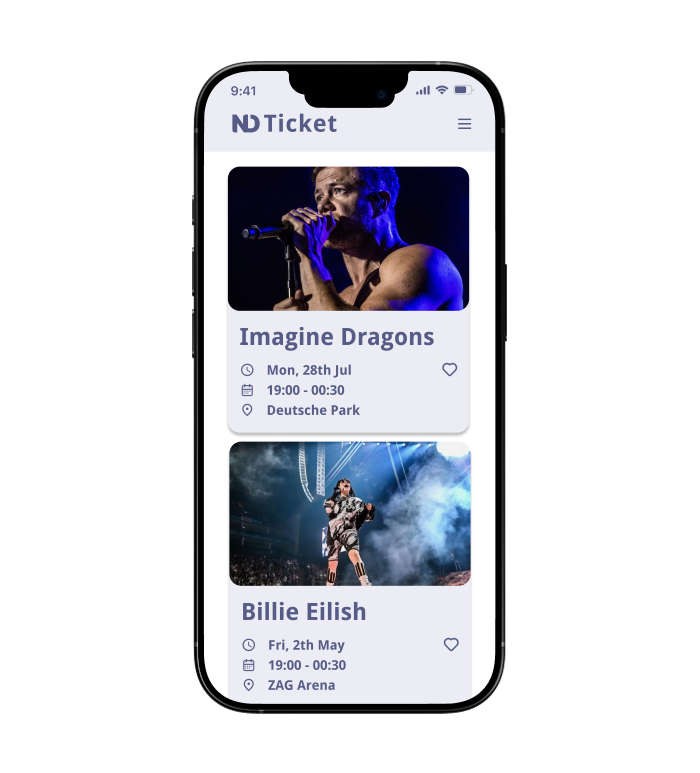
Festivals
Coachella launched Coachella Collectible NFTs, which serve as lifetime passes and include exclusive memorabilia. Another example is Way Out West, supported by the crowdfunding platform Corite. They auctioned off three lifetime NFT-based tickets and offered visitors to mint their festival memorabilia and moments as non-fungible tokens.
Hospitality
NFT tickets can help tourists looking to book accommodation in advance find legitimate platforms and view public records of their past activities. This can help users avoid fraud, scams, and overpaying for accommodation. If tourists are unable to travel, they can easily sell their tickets on secondary marketplaces.
Sports
NFT tickets create unique experiences for sports fans and help sports leagues solve problems they face regularly. For example, they can prevent unfair ticket resale prices and counterfeit tickets. In addition, tickets can be resold or exchanged on secondary market platforms.
Tech startups
The first example of a startup using NFTs is GUTS Tickets. It aims to prevent scalping by linking an NFT-based ticket to a person’s identity or wallet while giving artists a cut of secondary market revenue. YellowHeart is another startup using blockchain. They have introduced an NFT ticketing metaverse to help musicians and fans avoid fraud, high prices, and zero resale profits for artists.
Travel and tourism
With NFT-based tickets, passengers can quickly sell their tickets if they are unable to travel. When the NFT is sold to a new owner, it registers the buyer as the new holder. It also adds credibility to the entire system by allowing passengers to verify that their tickets are not counterfeit.
NFT ticketing works by turning a ticket into a blockchain-based token with rules that can be verified and enforced digitally. Instead of relying only on a PDF or a static QR code, organizers can use NFTs to prove ownership, reduce counterfeiting, and control how tickets are transferred or resold.
First, an organizer (or an NFT ticketing platform) creates a ticket collection on-chain using a smart contract—typically ERC-721 for unique seats/VIP passes or ERC-1155 for high-volume ticket batches. The contract can include rules such as transfer limits, approved resale channels, price caps, allowlists, or optional royalty logic.
Next, tickets are sold and distributed through the organizer’s checkout or a ticketing platform. Buyers may pay with a card or crypto, and the ticket can be delivered via an email-first wallet experience (custodial wallet or account abstraction) or to a self-custody wallet. Ticket metadata (tier/seat, perks, artwork, event details) is usually stored off-chain (often via IPFS), while personal customer data stays off-chain for privacy.
At the venue, entry is validated through a scanner/validator flow—most commonly using dynamic (rotating) QR codes or NFC-based validation. The validator checks that the ticket is real, belongs to the attendee’s wallet, and hasn’t been used before. This approach makes screenshot reuse and duplicated codes much harder to exploit than with static QR tickets.
After the event, organizers can optionally extend the experience by delivering collectible “keepsake” NFTs, airdrops, loyalty points, or token-gated perks to ticket holders – turning a one-time ticket purchase into an ongoing community and engagement channel.
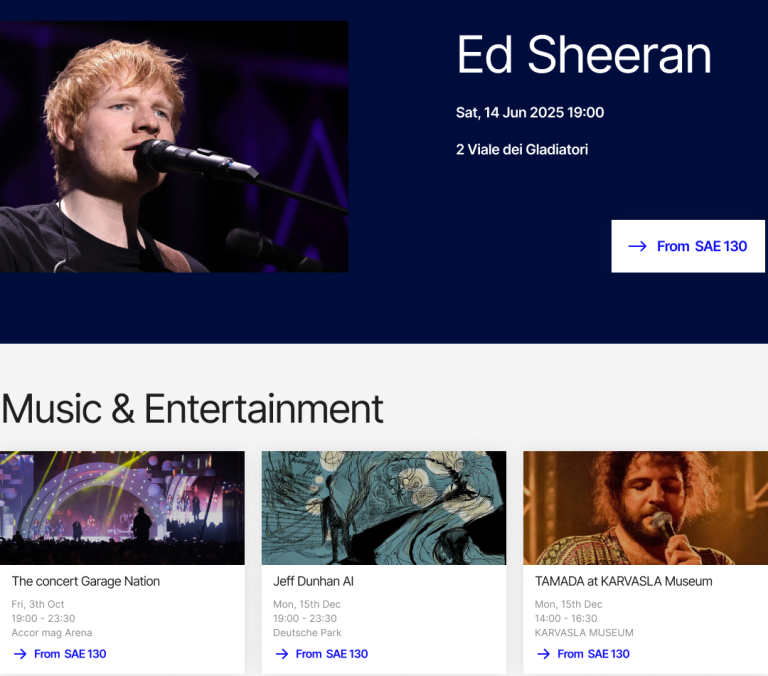
NFT ticketing and traditional ticketing are two different methods of managing and selling event tickets. In traditional ticketing, digital or paper tickets are distributed by an event coordinator or ticketing provider. In this case, tickets are sold through authorized resellers, box offices, and ticketing websites. Once purchased, the ticket provides access to the event and can only be used once.
To talk about NFT ticketing, it utilizes blockchain technology to create a unique non-fungible token that represents ownership of a specific event experience. Digital marketplaces typically sell NFT tickets, which can later be resold, transferred, or collected after they are purchased. When the NFT holder wants to attend an event, their tokens must be submitted for scanning and verification using blockchain technology.
Now, let’s take a deeper dive into the key differences between traditional ticketing and NFT ticketing.
Although traditional tickets are still widely used, NFT-based tickets are an emerging way to represent and manage event tickets. This type of event pass offers more flexibility and security in terms of handling sales, distributing digital tickets, and engaging fans.

Preventing fake tickets and scams
One of the major downsides of paper-based tickets, QR codes, and centralized digital tickets is that they can be easily counterfeited or stolen. This poses a security threat and disappointment for fans who have unintentionally purchased a counterfeit ticket.
Because NFT ticket transactions are recorded on a blockchain ledger, event coordinators and attendees can easily validate the authenticity of each ticket and track ownership history, making it nearly impossible for malicious actors to forge the details.
Reduce costs
Compared to the traditional ticketing system, the costs associated with minting and selling NFT-based tickets are negligible. Unique tickets can be produced at lower production costs, while customers and event coordinators can verify the authenticity of every ticket in the chain and track ownership history.
Quick production
While traditional paper-based tickets take days or even weeks to become available for sale, NFT tickets are created and minted in less than a minute. As a result, NFT ticketing is a cost-effective and easy way to issue event tickets across multiple distribution channels.
Perpetual revenue
The blockchain technology behind NFT tickets creates the potential opportunity to create tangible value for all stakeholders. For example, NFT-based tickets can provide perpetual royalties to artists and event coordinators through smart contracts.
When a ticket holder sells their ticket on the secondary market, the artist receives a percentage of the resale proceeds. Ticket holders can also resell NFT airdrops as part of the ticket’s built-in rewards.
New revenue opportunities
NFT-based tickets have unlimited potential for new revenue streams. For example, event coordinators can add rarity to tickets so they can be sold as digital collectibles later. Organizers can also use them to reward fans who have attended many events.
Lower chances of loss or damage
Traditional paper-based tickets are susceptible to being lost or damaged. NFT-based tickets are stored in a digital wallet that can be accessed via a mobile phone, so the risk of damage or loss is much lower.
NFT ticketing solutions are designed to reduce costs, speed up ticket distribution, and increase fan engagement through smart contracts and digital perks. They also contribute to the rise of top NFT-based tickets for concerts in 2026 by enabling secure, verifiable entry and adding fan value.
Creating artistic tickets. Traditional tickets are just proof of someone’s ability to get into an event. They look boring and have very limited functionality. NFT tickets, on the other hand, can be designed more artistically, using realistic images and 3D models. Moreover, they can have additional features, such as including Fortnite skins of famous singers.
Getting profit from NFT ticket reselling. The ticket distributor can use smart contracts to generate revenue from the resale of tickets. For example, a smart contract can set a certain percentage of the total ticket price as a surcharge whenever the ticket owner sells the NFT-based ticket to someone else. This prevents scalping and other fraudulent schemes, as the commission is automatically credited to the coordinator’s wallet.
Protecting online events. Centralized systems do not protect online event attendees from having their information collected and shared with third parties. Premium subscriptions to online courses, events, or webinars may offer better protection, but attendees who join events for free are vulnerable to privacy and security risks. With blockchain, event coordinators have complete control over the content and the right to decide who can access it.
Convenient ticket distribution. NFT-based tickets can be easily sold and distributed to customers. These tickets can be quickly shared as QR codes or via messaging. Unlike simple QR codes or SMS tickets, blockchain technology protects NFT tickets from copying, counterfeiting, and unauthorized resale on the secondary market.

Easy ticket authentication. Several services in the blockchain space can quickly verify the authenticity and origin of cars, food, gadgets, and more. Event coordinators can use the same tools to help customers, resellers, and stakeholders verify tickets before purchasing them.
KYC and AML compliance. Event coordinators can sell NFT-based tickets in compliance with KYC and AML procedures. The rules associated with these procedures can be written in a smart contract that integrates multiple identity verification services while maintaining customer anonymity.
Not every “NFT ticket” product works the same way. Some platforms issue a true on-chain entry ticket, while others focus on digital collectibles or token-gated access (where an NFT unlocks sales, perks, or VIP experiences).
To keep this list practical, we ranked platforms based on:
With those criteria in mind, here are ten notable options, from true on-chain entry-ticket systems to token-gated and collectible-focused solutions, so you can compare approaches and pick what fits your event.
DeFy Tickets

DeFy Tickets is an NFT ticketing platform that uses blockchain technology to create an ideal ticketing solution that works for event coordinators and attendees alike. The platform was founded by event industry professionals, DeFi enthusiasts, and technology experts who wanted to solve the problems of the current ticketing industry.
GET Protocol

GET Protocol is an emerging NFT ticketing company that offers ticket issuers a white-label set of products. Namely, it allows customers to create a tailored ticket wallet app, status dashboard, and real-time ticket sales. The company has a developer hub to enable further customization of its platform.
According to the company, GET Protocol provides ticketing services for over 200 events per month and has already helped companies from 121 countries create NFT-based tickets. The company also aims to pay ticket issuers royalties from secondary market sales.
GET Protocol also has a real-time NFT ticket explorer where users can enter a wallet address, index, or NFT ID to check the status of the ticket. GET Protocol operates on the Polygon blockchain.
Jeike Ticketing

Jeike Ticketing is a company that helps event coordinators manage their ticketing needs from a single dashboard directly connected to NFT-based tickets and digital collectibles. The company works primarily in the sports and entertainment industries.
GUTS Tickets

GUTS Tickets is a blockchain-based smart ticketing platform built to reduce fraud and price gouging on the secondary market. A key part of the UX is dynamic / rotating QR codes, which makes copied screenshots and duplicated tickets far harder to use at the door. In February 2025, CM.com acquired GUTS Tickets, bringing its blockchain ticketing technology into CM.com’s broader ticketing and customer engagement ecosystem.
Relic Tickets

Relic Tickets strives to provide event coordinators with powerful NFT-based ticket marketing tools and exclusive benefits for fans. Event managers can target specific audiences, track all data, and monitor profits in both primary and secondary markets in one place. Relic Tickets uses blockchain to eliminate counterfeit tickets and introduce a better way to sell event tickets.
SeatLabNFT

SeatLabNFT is one of the newest NFT ticketing marketplaces. The platform uses the NEAR Protocol blockchain. Ticket owners who hold tickets issued on the platform are rewarded with collectible airdrops that can be resold later. In addition, the original ticket issuers and ticket holders receive royalties from the future resale of the ticket.
To verify ticket authenticity and prevent counterfeiting and fraud, SeatLabNFT uses NFC technology. The platform has a unique governance token called $SEAT, which allows users to receive exclusive rewards.
SquadUP & Sidechain

SquadUP is a ticketing and management platform that creates mobile-first tools for event coordinators. Its ticketing services allow event managers to control the ticketing experience from start to finish and keep fans engaged with the coordinator’s own platform.
Sidechain is an NFT ticketing and loyalty platform that has partnered with SquadUP. They have created a special tool that allows fans to convert SquadUP tickets into digital collectibles.
TicketMint

TicketMint is a SmartLedger solution that merges non-fungible tokens and ticketing. It allows users to host Metaverse concerts, communicate directly with fans, and create NFT-based tickets and collectibles.
Wicket

WICKET is an Italian ticketing platform designed for ticket issuers. It is built on the GET Protocol. The platform aims to solve the problem of scalping in Italy, where event tickets are sold for more than 1,000% of the original price. WICKET also uses dynamic QR codes that make ticketing easier for ticket holders.
The platform allows ticket issuers to use dynamic pricing. For example, early bird tickets can be priced lower than tickets sold closer to the event. In addition, dynamic pricing makes it possible to reduce the price of NFTs sold as digital collectibles after the event and to offer discounts to VIP NFT holders.
YellowHeart

YellowHeart is one of the largest NFT ticketing platforms for major music artists. It provides ticketing solutions for brand-name events, including national and international concert tours. YellowHeart has worked with Maroon 5, Kings of Leon, and XXXtentacion.
The platform focuses on secondary market royalties to ensure that the original musician continues to earn from ticket resales. YellowHeart enables NFT ticket holders to obtain special memberships that guarantee access to special venues and exclusive benefits. The company also focuses on digital/physical NFT pairings. Namely, users can issue non-fungible tokens that represent physical merchandise such as vinyl.
Let’s take a look at some of the brands and companies that are actively exploring the NFT industry and leveraging the benefits of blockchain.
Ticketmaster
Ticketmaster has been experimenting with NFTs mainly in two directions: token-gated ticket sales (where holding a specific NFT unlocks early access, special seats, or fan experiences) and NFT collectibles issued for select events as digital memorabilia / proof of attendance. In other words, Ticketmaster often uses NFTs to gate access to sales or perks, rather than replacing the entire ticket itself with an on-chain NFT in the classic “NFT = the ticket” model.
Dallas Mavericks
Mark Cuban, the billionaire owner of the Dallas Mavericks, has offered to use NFT tickets for Dallas Mavericks games. He wants to create the most engaging and memorable NFT tickets ever.
“Dynamo” The Football Club
FC Dynamo Kyiv was among the early major football clubs to pilot NFT-based ticketing. In May 2021, the club announced plans to sell NFT tickets for home matches via the Binance NFT Marketplace, with the ticketing experience powered by Moonwalk. These NFTs were designed to unlock match entry and additional perks (rewards, drops, and experiences) through the club’s digital wallet. Dynamo said it expects that, over time, more than 25% of its general-admission home tickets could be sold as NFTs
Kings of Leon
Kings of Leon, a popular American rock band, released the album “When You See Yourself” and launched three different NFT collections in 2021. The first NFT included the audio of the album’s songs, the second was an exclusive animated digital album cover, and the third type of NFT included 18 “golden tickets.” The tickets guaranteed NFT holders front-row seats to any of the band’s live performances.
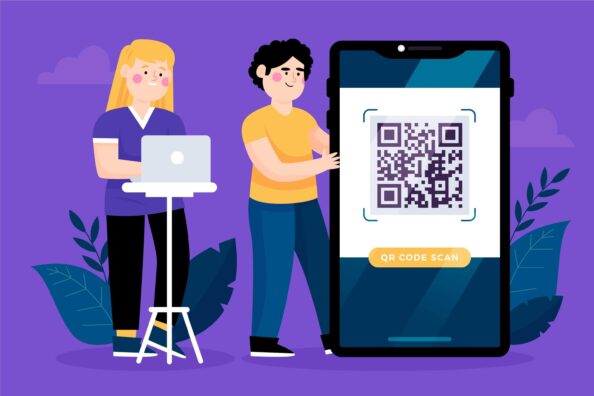
To sum up, NFT tickets are blockchain-based event tickets that can be used for entry and, optionally, as digital collectibles that unlock perks (discounts, upgrades, VIP experiences, or post-event rewards). For organizers, NFT ticketing helps reduce fraud, adds more control over resale, and opens additional revenue options through collectibles and loyalty mechanics. Now that you know the basics of NFT ticketing, let’s break down what you need to create NFT tickets for a real event.
Step 1 — Choose the blockchain and ticketing model.
Start by deciding whether you need a true NFT entry ticket (the NFT acts as the ticket) or a token-gated access approach (an NFT unlocks the right to buy or claim a ticket and perks). Then select a network based on transaction fees, reliability, and tooling. For mainstream audiences, many teams use low-fee networks plus lazy minting / gasless minting so fans can buy with a card and receive a ticket without managing crypto.
Step 2 — Develop the smart ticket contract (and enforce anti-scalping rules).
A smart ticket contract defines how tickets can be issued, transferred, and resold. This is where you implement anti-scalping controls: transfer limits, approved resale channels, price caps, allowlists, and (if relevant) royalty rules. The key is to enforce these rules in the contract, not only in the UI.
Step 3 — Set up metadata storage and secure entry validation.
Ticket metadata (seat/tier, artwork, perks, event details) is often stored via IPFS or similar storage to keep content consistent and verifiable. For venue entry, avoid static QR images that can be screenshotted and reused. Production NFT ticketing systems rely on dynamic (rotating) QR codes or NFC-based validation, backed by a scanner/validator flow that checks ownership and prevents duplicate entry.
Launching an NFT ticketing solution isn’t just “mint an NFT.” The final budget usually depends on three factors: event scale (hundreds vs. thousands of tickets), the onboarding you want (Web3 wallet vs. email login), and how strict your anti-scalping rules must be. In practice, most costs map to a few core workstreams.
First, there’s the smart contract work: choosing ERC-721 or ERC-1155, implementing transfer and resale rules, allowlists, optional royalty logic, and using upgradeability only when it’s truly needed. If you want anti-scalping to be more than a marketing line, this is where the rules must live.
Second, you’ll pay for the minting strategy and metadata pipeline. For mass events, teams often prefer lazy minting or gasless minting so fans don’t need crypto just to receive a ticket. You also need a reliable way to generate and store metadata (often via IPFS) and handle edge cases like refunds or ticket re-issuance.
Third, budget for wallet UX. If your audience is mainstream, the default should be email login (custodial wallets or account abstraction with simple recovery). You can still support “connect wallet,” but forcing it will reduce conversion.
Fourth, there’s entrance validation: scanner integration, dynamic QR codes or NFC, offline mode, and protections against screenshot reuse. This is non-negotiable, because even a perfect NFT contract fails if check-in is slow or unreliable.
Finally, you’ll need an ops layer: an admin panel for inventory and pricing, dashboards for analytics and fraud monitoring, customer support tools, and ongoing maintenance. Depending on your region and resale model, you may also need compliance workflows (for example, KYC/AML for regulated resale or payouts, refunds/chargebacks, and tax considerations).
A production NFT ticketing platform usually has two layers: on-chain ownership + rules and off-chain operations + validation. The on-chain layer proves who holds the ticket and enforces what it can do. The off-chain layer handles real-world workflows: payments, delivery, check-in, support, and reporting.
On-chain, your first decision is the token standard. ERC-1155 is typically better for high-volume ticket inventory because it’s efficient for batches. ERC-721 is useful when each ticket is unique (assigned seats, VIP passes, special tiers with distinct attributes).
Next comes metadata and storage. Ticket visuals, seat info, and perk descriptions are often stored via IPFS (or similar). Sensitive data should stay off-chain; keep NFT metadata clean and public-safe.
For minting, the common choice for events is lazy/gasless minting, where the platform mints only when needed and the user doesn’t pay gas. This improves conversion and reduces Web3 friction.
For wallet onboarding, the most scalable approach is email-first access (custodial or account abstraction) plus an optional “bring your own wallet.” The goal is simple: attendees should be able to open a ticket as easily as they open a PDF — but with stronger security and transfer controls.
For anti-scalping, the key is to enforce policy in code. That can include transfer limits, time-locks, price caps, approved resale channels, or controlled ticket re-issuance after resale. If your rules only exist in UI text, scalpers will bypass them.
Finally, you need real-world validation: dynamic (rotating) QR codes, NFC passes, and a scanner/validator flow that supports offline verification and prevents duplicate entry.
For ticketing, chain choice is less about hype and more about fees, reliability, and UX. If you’re selling thousands of tickets, high and volatile gas costs can hurt both margins and customer experience.
For high-volume events, the practical default is a low-fee network (often an L2) with strong tooling and support for gasless/lazy minting. Your top priority is fast issuance and smooth onboarding.
For premium drops and collectible-first experiences, choose a chain your audience already associates with collectibles, and lean into provenance, perks, and post-event value.
If you’re unsure, optimize for onboarding: pick a setup where users can purchase with a card, receive access without installing anything complicated, and still retain the option to self-custody later. In ticketing, UX usually beats ideology.
If you want to launch fast, treat NFT ticketing like a product rollout, not a single smart contract.
In 30 days (pilot MVP), you can ship a small production test: define your ticket type (entry NFT vs. token-gated + collectible), choose a gasless/lazy mint approach, implement a simple checkout and wallet view, and run a real on-site validation pilot with staff and scanners.
In 60 days (production-ready), you typically add operational essentials: an admin panel for inventory and tiers, controlled resale and refund flows, fraud monitoring signals, customer support tooling, and load testing for entrance validation (including offline mode).
In 90 days (scale and partnerships), you can layer on growth features: CRM and loyalty integrations, richer tier logic (VIP/seat maps), compliance options for resale where necessary, and a stronger security posture (audit, monitoring, incident playbooks).
On the flip side, NFT ticketing comes with real trade-offs. Below are the most common risks and challenges of NFT-based tickets, plus simple ways teams reduce them.
Complexity and UX friction.
For many attendees, wallets, seed phrases, and on-chain transactions are unfamiliar. If the flow requires installing a wallet or paying gas, conversions can drop. Mitigation: offer email login (custodial wallets or account abstraction), card payments, and a “connect wallet” option for advanced users.
Operational readiness (validation and support).
The technology may work perfectly on-chain, but the real test happens at the door. Scanner performance, connectivity, staff training, and fallback procedures matter. Mitigation: use dynamic (rotating) QR codes or NFC validation, support offline mode, and prepare a manual recovery flow (re-issue rules, identity checks, support desk).
Regulatory and consumer protection gaps.
Rules around digital assets, refunds, and secondary sales differ by jurisdiction, and consumer protections may be less clear than in traditional ticketing. Mitigation: publish a clear refund policy, document resale rules, and consider compliance workflows (e.g., KYC/AML) only if your resale/payout model requires it.
Scams and counterfeit sales.
NFT branding attracts phishing links, fake collections, and impersonation accounts. Mitigation: sell through verified channels, use official domains, publish clear instructions, and verify ticket ownership during entry validation.
Network and technical reliability.
Congestion, outages, or slow confirmation times can disrupt claiming or transferring tickets close to event time. Mitigation: favor lazy/gasless minting, avoid last-minute on-chain steps when possible, and build a resilient backend and validator flow.
Pricing and value expectations.
If the ticket is primarily an entry credential, it’s usually priced like a normal ticket and shouldn’t be marketed as an “investment.” Volatility matters more when you attach collectible value or secondary-market trading. Mitigation: separate the “entry” function from optional collectibles/perks and communicate clearly what buyers are actually getting.
Potential buyers should always check the event organizer, the official sales channel, and the ticket’s terms before purchasing. Organizers can reduce most risks with strong onboarding, secure validation, and clear policies — not only smart contracts
The ticketing industry keeps evolving as organizers push for better fraud protection, smoother digital entry, and more control over resale. While traditional e-tickets remain dominant, blockchain-based approaches are increasingly used for specific pain points — especially proof of ownership, controlled transfers, and collectible-style engagement.
In festivals, experimentation has been most visible in premium formats. Coachella’s Coachella Keys (2022) introduced a limited set of NFT lifetime passes with VIP-style perks, and the festival later expanded NFT-style access experiments with VIP “Keepsake” drops in 2024.
In sports, one of the clearest NFT ticketing examples came from the Monaco Grand Prix (2023), which introduced NFT tickets minted on Polygon in collaboration with key ticketing partners — combining entry credentials with collectible and loyalty-style benefits.
Football has also tested NFT-enabled models: for example, S.S. Lazio launched an NFT Season Ticket via Binance with benefits such as exclusive access and discounts.
Conferences often use NFTs more as collectibles, proof-of-attendance, or perk unlocks than as a pure “NFT = entry ticket” replacement. NFT.NYC, for instance, offers commemorative Artist NFT Tickets purchasable with Community Credits, which include an Eventbrite redemption benefit for admission.
Some events also run NFT-based promotions (for example, mint-to-win ticket draws) rather than full NFT entry ticketing.
Bottom line: NFT ticketing is real, but it’s still mostly strongest in premium tiers, loyalty-style programs, and controlled distribution experiments — with broader adoption depending on user-friendly onboarding and reliable on-site validation.
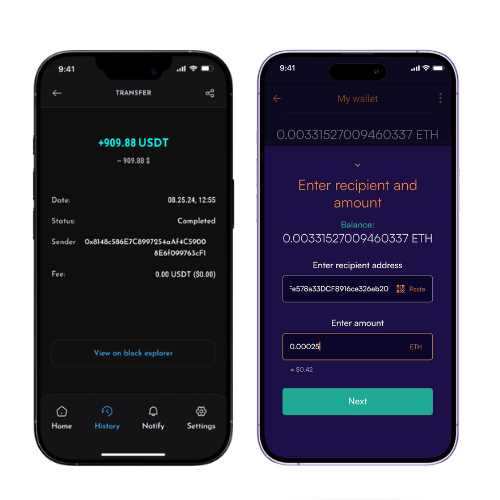
Successful adoption of NFT-based ticketing depends on competition from other ticketing strategies, technology improvements, and user enthusiasm. However, NFT ticketing is likely to continue to grow in popularity because it offers substantial advantages over traditional ticketing strategies.
Further development of blockchain technology can bring more security and transparency to NFT ticketing. For example, smart contracts can automate ticketing, thus eliminating fraud and ensuring that only legal ticket holders have access to the event. In addition, decentralized marketplaces can bring more flexibility and transparency to the process of distributing and selling tickets.
Non-fungible tokens can also represent vouchers, memberships, subscriptions, and other types of access. Therefore, more industries will be able to manage access in a more user-friendly way, expanding the use cases for NFTs.
All in all, the future of NFT ticketing seems promising, but potential users should keep an eye on market trends and emerging technologies. The concept will continue to evolve to meet the needs of event coordinators and fans.
Just like other Web3 technologies, NFTs and their use cases have evolved. As a result, tech enthusiasts are integrating NFTs into the ticketing industry to make the entire system more beneficial for event coordinators, musicians, and fans.
NFT-based tickets are built on a blockchain network, so they remain immutable after they are issued. As a result, their authenticity can be easily verified, preventing malicious actors from distributing counterfeit tickets. What’s more, NFT-based tickets allow event coordinators and musicians to gain more control over their ticket sales on the primary and secondary markets and build lasting relationships with fans.
Even though the NFT space is still in its infancy, it is actively growing and has the potential to improve the conventional ticketing system. Keep an eye on its potential opportunities! Experience the revolutionary technology of NFT Tickets. Get in touch with us and elevate your event to the next level. Experience the revolutionary technology of NFT tickets and explore how NFT ticketing solutions and top NFT ticketing platforms can elevate your event to the next level.